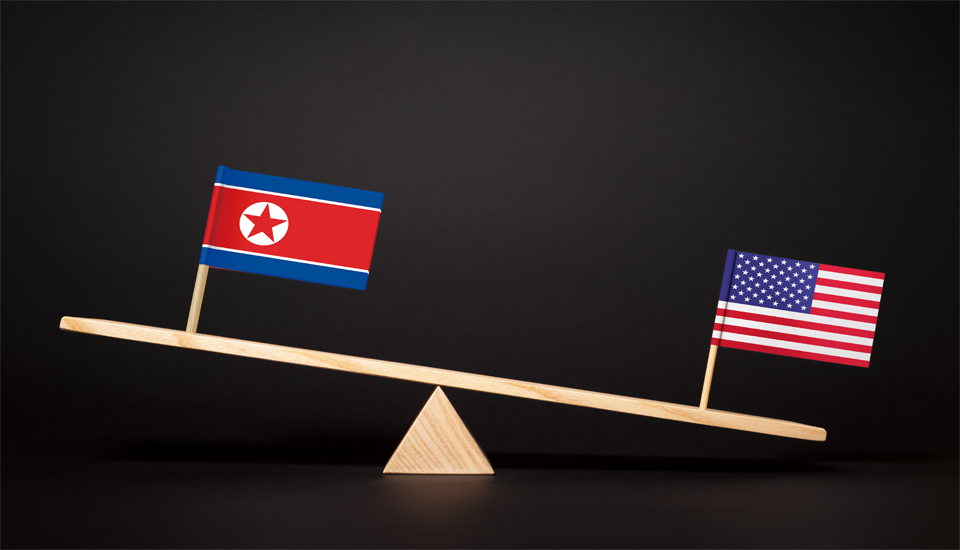
Ep. 20 Ken Gause: Evaluation of Washington’s North Korea Policy and a Path for the Denuclearization of North Korea
Interview | September 30, 2022
Ken Gause
Research Program Director at the Center for Naval Analyses
Mr. Ken Gause, Research Program Director of the Center for Naval Analyses claims that while the Great Power competition has been Washington’s top priority, the North Korea issue has been put on the back burner. As North Korea was likely to be ignored in the interest of the status quo, Pyongyang strengthened its military capabilities to show off that they were not going to remain idle with their existence benignly neglected. However, it seems that the Biden administration is pursuing a policy of “strategic patience” similar to the Obama administration’s policy. Mr. Gause urges that the Biden administration should implement active diplomatic engagement with North Korea without pursuing traditional pressure policy and suggests that the engagement with North Korea must be re-examined and incorporated as a part of a larger strategy tied to great power competition.
I. Limitation of Washington’s North Korea Policy
• Great Power Competition has been Washington’s top priority. Mr. Ken Gause demonstrates that this did not help the United States to measure up the threats that come from non-peer adversaries, who have asymmetrically weaker military and economic status. He mentions that this “carried unique dynamics that over time can change the international landscape more than is occurring in the Great Power Competition.”
• He states that “asymmetry in relations between the United States and less powerful adversary, North Korea makes the United States categorize North as a country which has challenges to be managed, and does not set the pace for U.S. national security policy unless they act up."
• He clarifies that the United States’ asymmetric challenge with North Korea stems from four primary causes, which are 1) conflict of interest between the weaker power (North Korea) and stronger power (the United States), 2) divergence between the two powers on the relative value of North Korea’s nuclear program, 3) contentment versus dissatisfaction with the status quo, and 4) North Korea’s fear of becoming even weaker if the status quo continues.
II. President Biden’s North Korea Policy
• Mr. Ken Gause indicates that the “Biden Administration has moved away from the high-stakes transactional diplomacy of the Trump administration … to pursue a strategy of coercion or strategic patience- similar to the Obama administration’s foreign policy toward asymmetrically weaker adversaries.”
• Based on the unique circumstances of the adversaries, he points out that “the return to traditional pressure strategies will likely lead to continued stalemate or worse growth of an adversarial threat held unaccountably.”
• He concerns that “there’s much that Biden is going to be able to do unless North Korea has a breakout phase… And the United States at least believes it still has some time, but the time could evaporate very quickly if North Korea starts to test what they did in 2017.”
Ⅲ. North Korea Policy Recommendations for the Biden Administration
• Mr. Ken Gause states that “with North Korea, engagement cannot be conducted as a black-and-white zero-sum-game. It must be re-examined and incorporated as part of a larger regional strategy tied to great power competition.”
• In order to actively pursue its goals regarding North Korea, he suggests that “President Biden should look at ways to introduce pragmatism into a reality-based approach”, including 1) conducting a serious assessment of the Trump era’s top-down approach, 2) appointing a special representative and give a significant authority to act on his behalf, 3) refraining from demonizing North Korea which will only cause Pyongyang to lash out further, and 4) revisiting basic principles of U.S. North Korea Policy.
• In addition, he proposes that the U.S. policymakers should make two major shifts in their strategy that are 1) dropping denuclearization as the single solidarity objective of U.S. strategy toward North Korea, and 2) integrating the denuclearization into a larger U.S. strategy in Asia focused on managing the relationship with China.
■ Ken Gause is the Research Program Director at the Center for Naval Analyses. He directs the Adversary Analytics Program. He is CNA’s senior foreign leadership analyst and has spent the last 20 years developing methodologies for examining leadership dynamics of hard-target, authoritarian regimes. In particular, he is an internationally respected expert on North Korea who has written three books on North Korean leadership. His latest book is North Korean House of Cards: Leadership Dynamics Under Kim Jong-un. Gause has also published numerous articles on leadership structures for such publications as Jane’s Intelligence Review, Jane’s Defense Weekly, and the Korean Journal of Defense Analysis. He has a B.A. from Vanderbilt in Russian and Political Science and an M.A. from the George Washington University in Soviet and East European Affairs.
■ Typeset by Junghoo Park, Research Associate
For inquiries: 02 2277 1683 (ext. 205) | jhpark@eai.or.kr
International Relations
LIST